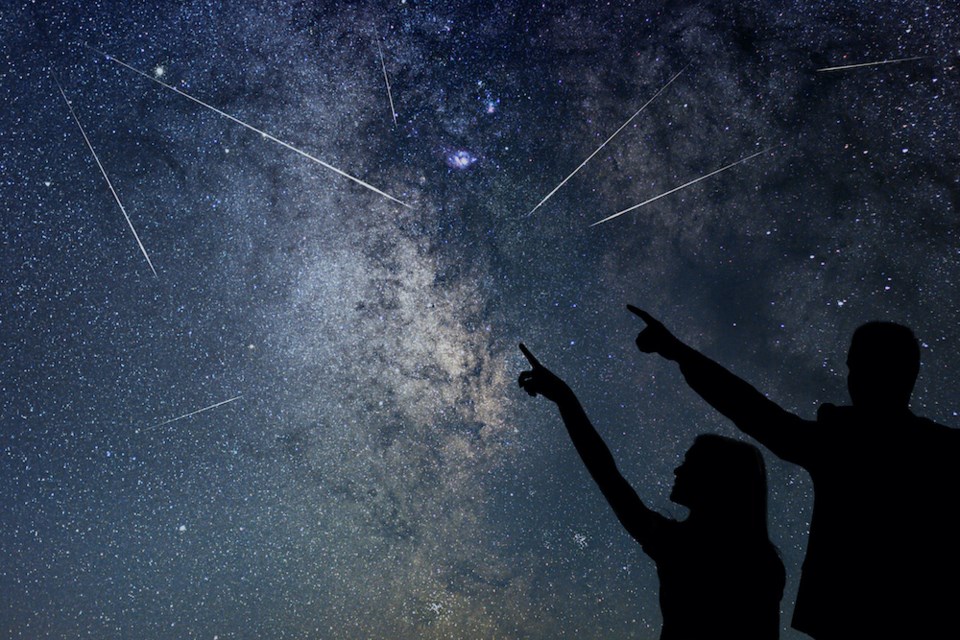One of the year's most beautiful meteor showers is about to peak in Metro Vancouver.
Locals who noticed some bluebird skies emerging on Monday, Oct. 21 might plan on trying to catch the electrifying peak of the Orionid meteor shower overnight (if the weather holds up).
The annual shower is considered one of the top celestial events and often produces bright, speedy meteors that leave "glowing trains" behind them as they sail across the sky.
According to NASA, meteors can sometimes evolve into "fireballs," bigger explosions of light and colour persisting longer than typical meteor streaks.
The American Meteorological Society notes that the shower can putting it on par with the Perseid meteor shower (one of the brightest showers of the year). On average, the Orionids produce roughly 10 to 20 shooting stars but in exceptional years they may produce up to 50 to 75 per hour.
Orionid meteor shower peaks in Metro Vancouver
Rosanna Tilbrook, an astronomer at the , tells V.I.A. that the meteor showers are named after the constellation they "appear to originate from." The Orionids originate near the constellation of Orion ("the hunter") but the shower will be visible across the night sky.
"Luckily for us, Orion is one of the easiest constellations to spot — his 'belt' features three bright stars in a line, sandwiched in the middle of a big rectangle of four bright stars," she explains.
Meteor showers occur when Earth sweeps through a comet's debris stream as it orbits the sun. The debris includes small rock particles that burn as they enter Earth's atmosphere and "appear as shooting stars." The comet responsible for the Onionid shower is the famous Halley's comet.
Tilbrook says the ideal time to view the Orionids is just before sunrise around 6 a.m. At this time, Metro Vancouver will face directly into the incoming meteor stream, maximizing the number of them raining down.
"At other times of the night, you will still be able to see meteors streaking across the sky as they enter the atmosphere at a more oblique angle," she notes.
What if the Metro Vancouver weather forecast doesn't hold up for the display?
V.I.A.'s Weatherhood station shows dry conditions through the remainder of Monday, with showers commencing on Tuesday around 6 a.m. However, locals have other opportunities to view meteors from the shower, although in lesser numbers.
"Even though the Orionids peak tonight, viewers will still be able to catch a glimpse of the shower until Nov. 7," says Tilbrook.
While the Orionids can have some impressive, bright meteors, the shower isn't one of the most productive.
Tilbrook notes that the Geminids in December produce around a whopping 115 meteors an hour at its peak — meaning there's a great winter shower to look forward to, provided it doesn't get snowed out.
Stay up to date with hyperlocal Metro Vancouver weather forecasts across to plan your viewing experience.



